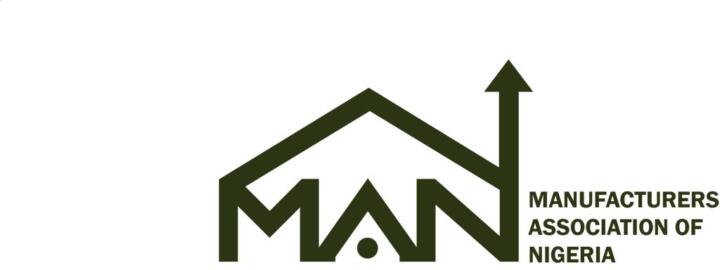The Manufacturers Association of Nigeria (MAN) has appealed to the National Agency for Food and Drug Administration and Control (NAFDAC) to rethink its impending ban on alcoholic beverages packaged in sachets and small-volume containers, warning that the move could disrupt investments and threaten jobs across the nation. MAN’s leadership emphasized that the ban, if implemented abruptly, risks undermining the operations of several manufacturers who have invested heavily in the production and distribution of sachet-packaged alcoholic drinks.
In a statement, MAN’s Director General, Segun Ajayi-Kadir, noted that the industry had been anticipating a phased approach to any regulatory changes rather than a sudden prohibition. He stressed that the sector had developed infrastructure, supply chains, and marketing strategies around sachet packaging, and an immediate ban could lead to substantial financial losses. Ajayi-Kadir further highlighted that the policy could potentially affect over 500,000 direct jobs and millions more in related industries, including logistics, distribution, and retail.

The association argued that smaller alcohol packaging formats serve an important consumer segment that prefers affordable, manageable quantities. Eliminating sachets without providing alternative solutions could not only harm legitimate manufacturers but might also drive the growth of unregulated and illicit products, undermining public safety rather than improving it. MAN urged NAFDAC to adopt a consultative approach involving industry stakeholders, public health experts, and policymakers to ensure that any regulatory action balances public safety with economic sustainability.
NAFDAC, on its part, has maintained that the ban is aimed at addressing public health concerns. Officials argue that sachet-packaged alcoholic beverages are often affordable, portable, and easily concealed, factors that contribute to underage consumption, excessive drinking, and social disorder. The regulator has consistently stated that phasing out such packaging aligns with international best practices and supports efforts to reduce alcohol-related social problems.
Industry experts, however, contend that while the public health rationale is valid, the timing and enforcement strategy for the ban are critical. Abrupt implementation could lead to a significant disruption of supply chains, loss of tax revenue, and economic setbacks for manufacturers who have relied on sachet packaging as part of their business models. MAN has suggested that NAFDAC should prioritize education, licensing reforms, and stricter enforcement of existing alcohol regulations rather than an outright ban that could destabilize the sector.
The debate over the sachet alcohol ban also intersects with broader concerns about industrial growth and job creation in Nigeria. The beverages sector contributes significantly to the country’s economy through taxes, employment, and domestic production. Industry observers warn that poorly managed regulatory changes could discourage local investment and limit the capacity of manufacturers to compete in the market, ultimately affecting consumers who rely on these products.
MAN has called for a review of the ban and proposed that NAFDAC work closely with the industry to establish clear timelines, provide technical guidance, and implement a phased approach. The association also recommended that NAFDAC consider alternative measures, such as setting stricter labeling standards, limiting sales to regulated outlets, and enhancing public awareness campaigns to reduce alcohol abuse without completely eliminating sachet packaging.
The association highlighted previous agreements between manufacturers and regulators that allowed gradual phase-outs, noting that these arrangements have historically provided the industry with time to adjust while safeguarding public interest. Ajayi-Kadir emphasized that respecting these agreements ensures that the industry remains viable while simultaneously addressing health concerns.
As the December 2025 deadline for enforcing the ban approaches, both NAFDAC and industry stakeholders face increasing pressure to reach a balanced resolution. Analysts argue that a cooperative approach that considers economic, social, and health impacts would create a win-win outcome, maintaining industry stability while protecting public health.
The situation underscores the broader challenge of regulating consumer goods in a developing economy. Policymakers are tasked with ensuring public safety while also fostering a conducive environment for business growth. The case of the sachet alcohol ban illustrates how regulatory actions must be carefully calibrated to prevent unintended economic consequences.
Industry leaders and public health advocates alike agree that the ultimate goal is to promote responsible consumption of alcoholic beverages and to mitigate associated social risks. However, they stress that achieving this requires dialogue, careful planning, and the active participation of all stakeholders in crafting practical and sustainable solutions.
In conclusion, the Manufacturers Association of Nigeria has appealed to NAFDAC to reconsider the implementation of its sachet alcohol ban, advocating for a more measured and collaborative approach. By engaging with industry stakeholders, regulators can ensure that public health objectives are met without disrupting investments, endangering jobs, or fueling the growth of illicit markets. The coming weeks are expected to be critical in determining how this balance between economic interests and health regulation will be achieved.
Support InfoStride News' Credible Journalism: Only credible journalism can guarantee a fair, accountable and transparent society, including democracy and government. It involves a lot of efforts and money. We need your support. Click here to Donate
